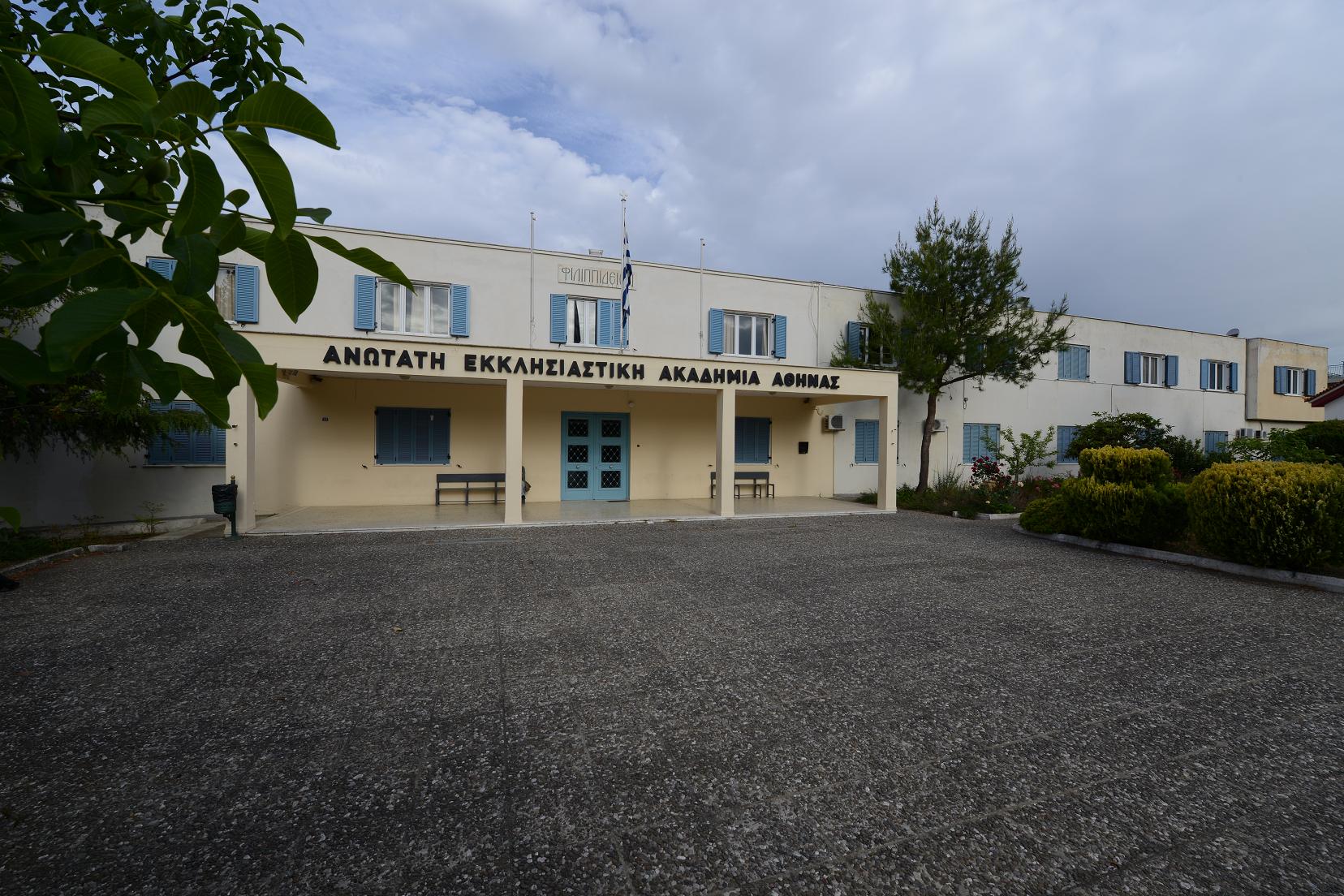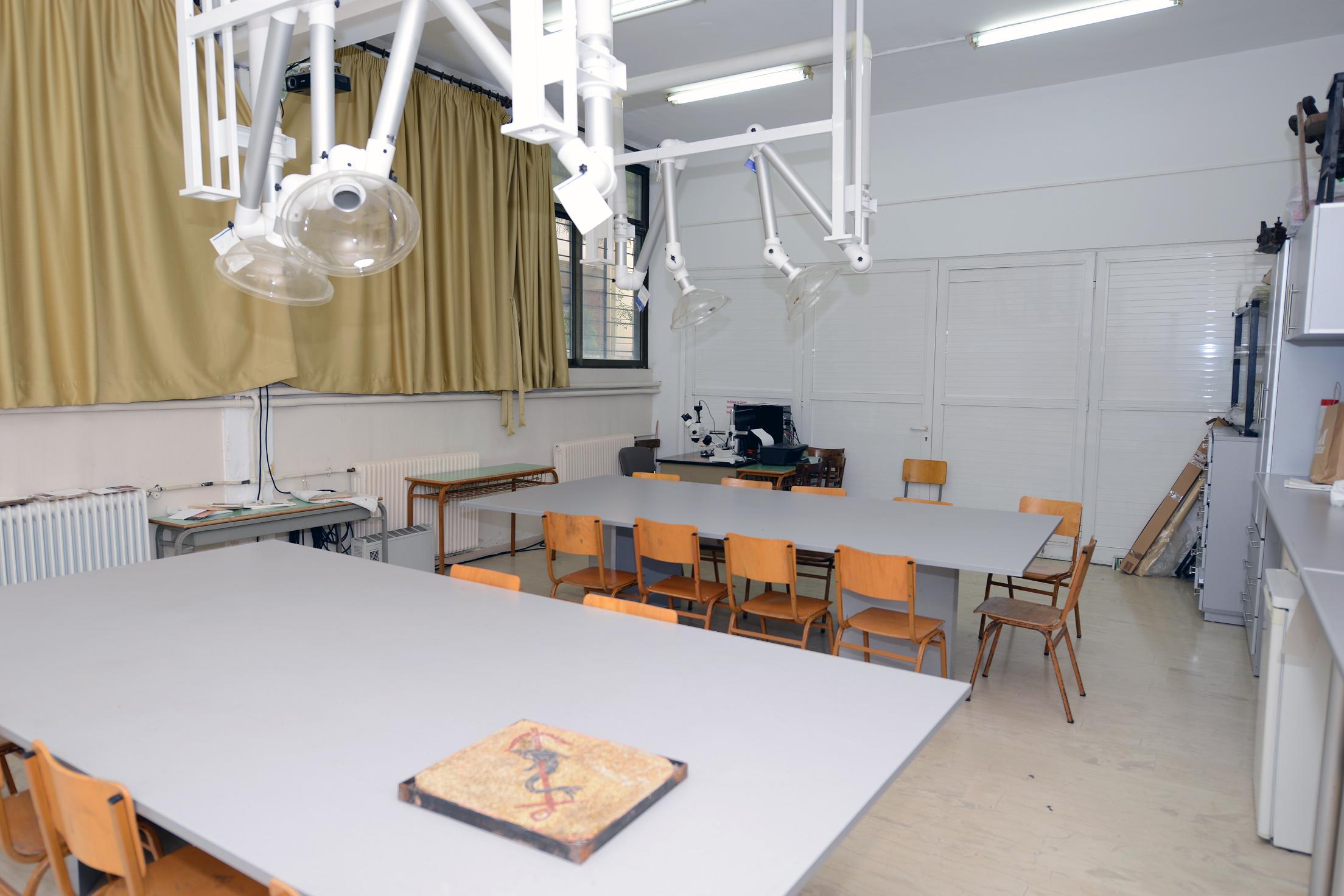
ECCLESIASTICAL ACADEMY of ATHENS (A.E.A.A.)
Ecclesiastical Academy of Athens, Greece (AEAA, https://aeaa.gr)) is a Public Higher Education Institution of Greece; Degrees awarded by the Ecclesiastical Academy of Athens are equivalent to those of any other public Greek University. The AEAA consists of two Departments and each of them follows a curriculum of 8 semesters:
- Department of Management of Ecclesiastical Cultural Heritage Objects
- Department of Pastoral Studies
Ecclesiastical Academy of Athens has been awarded with the Erasmus+ Charter for Higher Education for first time in 2017. Since then, AEAA has signed many Eramsus+ Inter-institutional Agreements with Higher Education Institutions, such as: Katholieke Universiteit Leuven, University of Eastern Finland, Comenius University, Bratislava, St. Cyril and St. Methodius University, Veliko Turnovo, Bulgaria, TOPKAPI University Istanbul, Ozyegin University, Istanbul, Turkey, National Academy of Music, Bucharest, Romania , Plovdivski Universitet “Paisii Hilendarski”, Plovdiv, Bulgaria, Ludwig-maximilians Universitat Munchen , Vilnius College of Technologies and Design, Vilnius, Lithuania, Singidunum University, Belgrade, Serbia e.t.c.
PROGRAMME OF STUDIES:
- Department of Management of Ecclesiastical Cultural Heritage Objects
(Total ECTS=240)
1st Semester: Ecclesiastical Byzantine and Post-byzantine Architecture; History of Western Art; Introduction to management-conservation of Cultural Heritage Objects Science
2nd Semester: Science and Engineering of Construction Materials; Freehand Drawing; Analytical Chemistry; Computer Science; Environmental Conditions for the Preservation of Cultural Heritage Objects; Ceramics
3rd Semester: Instrumental Chemical Analysis; Evaluation of Cultural Heritage Objects and Operational Planning; Physics Elements; Computer Design; Epigraphy; Excavations and Findings
4th Semester: Conservation Chemistry for Cultural Heritage Objects; Ecclesiastical Silver-Gold Smithery; Ecclesiastical Gold Embroidery; Museology; Mosaic Art and Conservation; Causes and Deterioration Mechanisms of Materials
5th Semester: Conservation Chemistry for Cultural Heritage Objects; The Color as Matter and Symbol in Cultural Heritage Objects; Methods for Surveying and Documenting Cultural Heritage Objects; Physicochemical Methods for Diagnosis of Ecclesiastical Cultural Heritage Objects; Materials for Intervention and Restoration; Fresco Painting in Art; Monument Topography and Surveying; Technical Drawing; Photography
6th Semester: Painting (Materials and Techniques); Physicochemical Methods for Diagnosis of Ecclesiastical Cultural Heritage Objects; Conservation of Wooden Artifacts; Conservation of Icons; Elements of Biology and Principles of Bio-deterioration; Diagnosis – Historical Evaluation and Conservation of Artwork; Christian Art in Greece; Theory and Methodology of analysis of artworks
7th Semester: Conservation of Wooden Artifacts; Pathology and Treatment of Previous Unsuccessful Interventions in Conservation and Restoration of
Cultural Heritage Objects; Materials and Techniques of Book Manufacturing; Management of Archival Collections; Conservation of Books – Codes – Documents; Ecclesiastical Miniature Art; Digitization Techniques for Monuments and Cultural Heritage Objects; Ecclesiastical Weaving; Image Digitization and Analysis; contemporary coating materials for Cultural Heritage Objects protection
8th Semester: Aesthetics of the Orthodox Christian Art; Conservation of Inlays-Glass-Vitro; Conservation of Fabrics and Vestments;Conservation of Metallic Worship Objects; Conservation of Sculptures and Marble Monuments; Conservation of Icons; Conservation of Books – Codes – Documents; Law of Cultural Goods; Bachelor Thesis

- Department of Pastoral Studies (Total ECTS=240) (Male students only)
1st Semester: Introduction to New Testament; General Ecclesiastical History I; Introduction to Psychology; Introduction to Philosophy; Hymnography; ritual and music of Greek Orthodox Worship I; Sources of Ecclesiastical History; Clergy and Monks Law; Modern Heresies and Schisms; Data processing; History of the New Testament Era; Philosophy of Religion; History of People and Events of the Gospels 2nd Semester: Introduction to Old Testament; Ecclesiastical Literature I; Pedagogics; Christian Archaeology; Hymnography; ritual and music of Greek Orthodox Worship II; Greek Paleography; Local Ecclesiastical History-Religious tourism; Philosophy of Education; Old Testament in the books of the New Testament; Biblical Archaeology; Liturgical Tradition; Hymnography
3rd Semester: Liturgical Tradition; Ecclesiastical Literature II; Christian Education; Liturgical Tradition; Psychology of Communication; Hymnography; ritual and music of Greek Orthodox Worship III; Western Theology; Church and personal rights; History of Ancient Greek Philosophy; Scientific Methodology; Interpretation and Theology of New Testament; Ethics
4th Semester: Ecclesiastical Literature III; Dogmatic History; Canon Law and Church Law; Ancient Greek; Communication systems technologies; General modern and contemporary History; Introduction to Museology; History of Ancient Patriarchates and Orthodox Church; Contemporary Philosophical Issues; Psychology of Dialogue; Byzantine Church Music; Study of Confessional Texts aſter the Fall of Constantinople
5th Semester: Dogmatic Theology I; Byzantine Philosophy; Rituals – Order of Orthodox Worship; Informatics in Pastoral Practice; English I; OrthodoxChurch in Contemporary Era I; Religious Psychology; Aesthetics of the Orthodox Christian Art; Historical Geography of Holy Land; Byzantine Church Music; Pastoral Psychology; Organization and Administration of the Church
6th Semester: Greek Ecclesiastical History; Pastoral Practice and Confession; Interpretation of the New Testament; English II; Theology of icons; Byzantine Church Music; Issues of Patristic Theology; Pedagogical Psychology
7th Semester: General Ecclesiastical History II; Hagiology; History of Religions; Interpretation of the Old Testament; Issues of Neptic Theology; Inter-orthodox; Inter-christian; Inter-religious relations; Interpretation of Patristic Texts; Psychology of Depth; Byzantine Church Music; English III
8th Semester: Dogmatic Theology II; Missiology; Christian Moral and Bioethics; Introduction to management-conservation of Cultural Heritage Objects Science; Orthodox Church in Contemporary Era II; General Ecclesiastical History III; Social Psychology Issues; Byzantine Church Music; Digitization Techniques; English IIII
